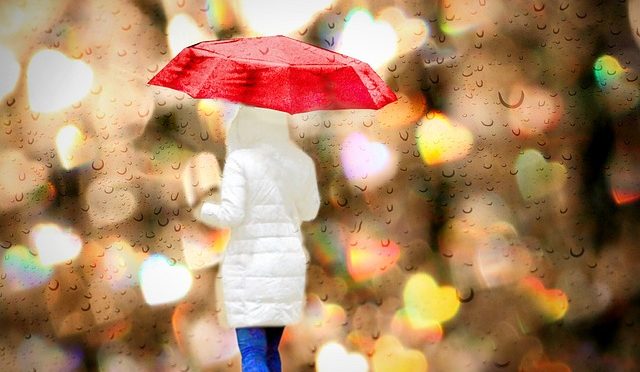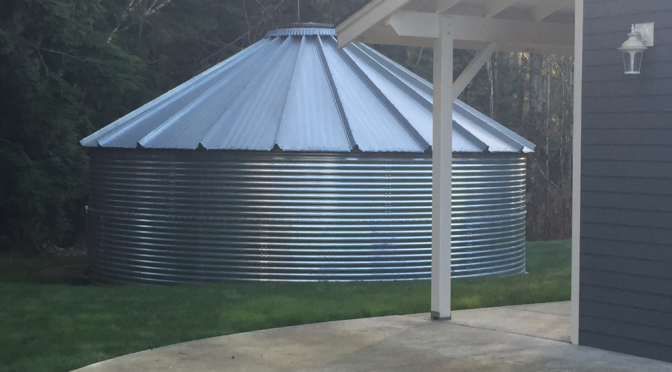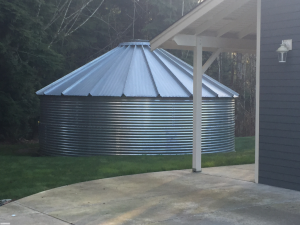 Whether it is a small rain barrel garden system or the largest commercial irrigation system, there are many environmental benefits to rainwater harvesting.
Whether it is a small rain barrel garden system or the largest commercial irrigation system, there are many environmental benefits to rainwater harvesting.
Here in the Pacific Northwest we have a climate that sustains and nurtures our forests, lakes, rivers, and lifestyles. Often we grumble a little about the long dreary rainy days of autumn and winter, dreaming of summer months of enjoyment and recreation that our beautiful state offers. It is the rain that feeds our mountains with snow, keeps our rivers and lakes full, our forests green, our air clean, and our water supplies replenished. We are fortunate to live where the climatic conditions offer a seemingly never ending supply. and never give it much thought. Water from oceans, lakes, rivers turn into water vapor during evaporation, then condensate into droplets that form clouds. As the clouds become heavy they lose their water through rain or snow and the cycle starts over again. Protecting the cycle of water with sustainable, environmental practices and conservation will help ensure our water supplies for future generations.
What if we interrupted that cycle for a moment? Borrow that water briefly? Then, return it to the natural cycle without a lot of energy. Rainwater harvesting does just that by on site collection, storage and use returning it through infiltration. Rainwater harvesting:
CONSERVES WATER : 50 – 70 % household use is used for landscaping. It does not need to be treated to drinking water standards.
CONSERVES ENERGY: Rainwater collection bypasses a centralized system, conserving energy.
PREVENTS FLOODING & EROSION: Less stormwater to manage by diverting it to storage, then usage.
DECREASES WATER CONTAMINATION: Limiting runoff which pick up contaminants as surface water.
REPLENISHES AQUIFERS: Washington State Ecology determined that in stream flow rates and Aquifers benefitted from rainwater collection and infiltration.
Other benefits include lower monthly water bills, provides naturally soft water, use of less detergents and soaps. If properly filtered and disinfected, rainwater can be used for whole house demands including drinking water, free of chlorine and other additives used in municipal water supplies. Rainwater collection can be a practical answer to storm water and drainage codes, allowing for mitigation of the roof area as an impervious surface.
So when it rains here in Seattle, look at it as a gift – a gift that we can pay forward by common sense stewardship of this life sustaining resource.



 Collecting rainwater offers many benefits for residents and businesses – for potable (drinking, showering) and non-potable applications (toilet flushing, irrigation, wash down) – and more. Water tanks can be made of plastic or
Collecting rainwater offers many benefits for residents and businesses – for potable (drinking, showering) and non-potable applications (toilet flushing, irrigation, wash down) – and more. Water tanks can be made of plastic or